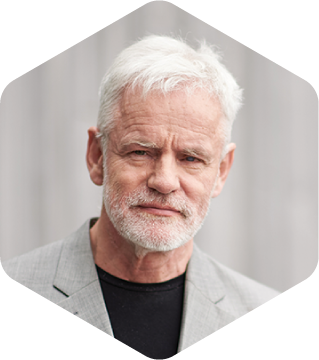Is massive scale proteomics causing a paradigm shift in biomarker discovery?
ABSTRACT
In this 45-minute talk, Dr. Stefánsson will discuss the largest population proteomics study ever performed to help provide more insight on disease and health outcomes. This collaborative research assembled expertise from deCODE Genetics and SomaLogic to combine the study of genetic and protein diversity to characterize disease biomarkers in the human population. The data from this type of proteomic study will inform drug discovery and development as well as improvements in health management. You will learn about:
- The high-throughput technologies that made this study possible
- The application of population proteomics in diagnosis and management of common and rare diseases

Dr. Kári Stefánsson
CEO, deCode Genetics
Kári Stefánsson is an Icelandic neurologist and founder and CEO of Reykjavik-based biopharmaceutical company deCODE genetics. In Iceland he has pioneered the use of population-scale genetics to understand variation in the sequence of the human genome.
More webinars
WebinarBoutique Webinar Aptamers with protein-like side chains as a versatile tool for high-content proteomics
Proteins, encoded in 20,000 genes in humans, do much of the work in biology. Measuring proteins, which change in response to various perturbations and represent targets for almost all drugs, offers insights about the health status of an organism. Since proteins operate in complex networks rather than in isolation, measuring multiple proteins simultaneously offers richer insights compared to single protein measurements.
WebinarUsing Proteomics To Advance Understanding of Alzheimer’s Disease
Limited understanding due to its complex pathophysiology and lack of definitive biomarkers currently constrains the diagnosis and treatment of Alzheimer’s disease (AD). But new research is uncovering dynamic brain changes during Alzheimer’s progression, offering potential therapeutic targets. This webinar explores how proteomics and systems biology can be integrated to elucidate AD pathology.
WebinarPredictive modeling and reliable biomarker discovery in clinical omics studies
High-content omic technologies coupled machine learning methods have transformed the biomarker discovery process. However, the translation of computational results into scalable clinical biomarkers remains challenging. A rate-limiting step is the rigorous selection of reliable biomarker candidates among a host of biological features. Drawing examples from real-world clinical omics studies, I will introduce Stabl, a general machine learning framework that identifies a sparse, reliable set of biomarkers by integrating noise injection and a data-driven signal-to-noise threshold into multivariable predictive modeling.





